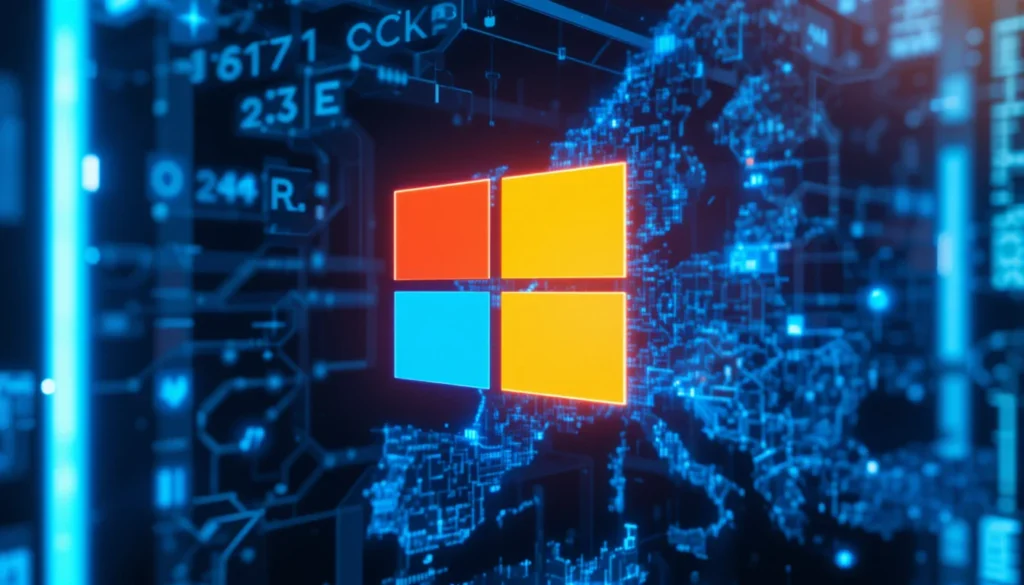Overview
Microsoft is stepping up its efforts to combat rising cyber threats by offering free cybersecurity support to 17 European governments. This strategic move is aimed at bolstering national defenses against increasing attacks from nation-state actors, hacktivists, and cybercriminals.
Key Facts
- Focus Keyword: Microsoft Free Cybersecurity Help
- Microsoft is offering free cybersecurity support to 17 EU and NATO countries.
- The initiative targets national-level security organizations, election commissions, and ministries.
- This support includes threat intelligence, cloud security assessments, and access to Microsoft’s Cyber Threat Intelligence Program.
- European governments are under growing threats from state-sponsored hackers, including groups linked to Russia and China.
- This action aligns with Microsoft’s broader Defending Democracy Program.
What’s Verified and What’s Still Unclear
✅ Verified:
- Microsoft officially launched this initiative under its Cybersecurity Public Program.
- Support is currently available to EU, NATO, and select European nations.
- The offer is free of charge and will run through 2025.
- Microsoft has existing partnerships with CERTs and ministries in several nations.
❓Unclear:
- Whether this program will be extended to private sector entities.
- The total investment or operational cost Microsoft will incur.
- How participating nations will coordinate information-sharing.
Timeline of Events
- June 2024: Microsoft reports a rise in European-targeted cyberattacks.
- Early 2025: Political tensions increase ahead of elections in various EU states.
- June 2025: Microsoft unveils its Free Cybersecurity Help Program for European governments.
- June 23, 2025: Public announcement made through Microsoft’s official blog and press release.
Who’s Behind It?
This initiative is being led by Microsoft’s Digital Security Unit (DSU) in collaboration with the Defending Democracy Program. The goal is to protect democratic institutions from interference and ensure election integrity. Microsoft has historically exposed operations by Russian APTs like Midnight Blizzard and Iranian actors such as Phosphorus.
Public & Industry Response
The announcement has received positive feedback from the cybersecurity community and European governments alike.
🔹 French National Cybersecurity Agency (ANSSI) welcomed the move, calling it “a vital step in European digital sovereignty.”
🔹 CyberPeace Institute stated this reflects a “growing public-private alignment against digital threats.”
🔹 On social media, cyber professionals praised Microsoft for putting security over profit.
However, some experts also raised concerns about the geopolitical implications of relying on American tech giants for national defense.
What Makes This Initiative Unique?
Unlike paid threat intelligence services, Microsoft’s Free Cybersecurity Help stands out because:
- It is strategically offered to national agencies instead of just commercial clients.
- Offers real-time intelligence about active threat campaigns and cloud compromise patterns.
- It leverages Microsoft’s global sensor network across Azure, Office 365, and Defender.
- Emphasizes democracy protection, particularly election infrastructure.
This proactive approach also demonstrates how tech giants can influence geopolitical cyber stability through public service.
Understanding the Basics
Microsoft’s help includes:
🔐 Cloud Security Reviews – to detect misconfigurations and vulnerabilities in national infrastructure hosted on Azure or other platforms.
📈 Threat Briefings – based on telemetry from Microsoft’s cybersecurity tools.
🧠 Training & Simulation – assisting local teams in preparing for nation-state attacks.
💡 Alerts Integration – enabling automatic sync of indicators of compromise (IOCs) into national security monitoring systems.
This isn’t limited to Microsoft customers—any eligible European agency can sign up.
What Happens Next?
Over the next 12 months, Microsoft will:
- Expand partnerships with national CERTs across Europe.
- Launch a dedicated secure portal for real-time threat feeds and mitigation guides.
- Engage with EU policymakers to improve cyber resilience and policy frameworks.
- Possibly announce similar programs for Asia-Pacific or Latin America.
In parallel, other companies like Google (Mandiant) and Amazon (AWS Security) may follow suit to remain competitive.
Summary
Microsoft’s decision to offer free cybersecurity help to European governments is a strategic and timely response to rising geopolitical cyber threats. By empowering public institutions with cutting-edge threat intelligence and cloud protection, the tech giant is making a powerful statement: defending democracy is a collective responsibility.
This initiative not only boosts Europe’s digital defense but sets a global precedent for how public-private alliances can counteract state-sponsored cyber warfare.
